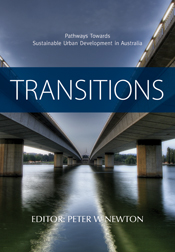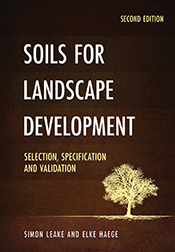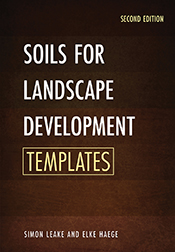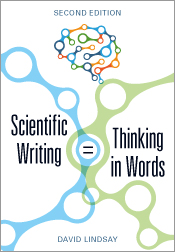Transitions
Pathways Towards Sustainable Urban Development in Australia
Edited by: Peter W NewtonAn in-depth introduction to important social and political issues around the future of city planning for the next generation.
Formidable challenges confront Australia and its human settlements: the mega-metro regions, major and provincial cities, coastal, rural and remote towns. The key drivers of change and major urban vulnerabilities have been identified and principal among them are resource-constraints, such as oil, water, food, skilled labour and materials, and carbon-constraints, linked to climate change and a need to transition to renewable energy, both of which will strongly shape urban development this century. + Full description
Transitions identifies 21st century challenges to the resilience of Australia’s cities and regions that flow from a range of global and local influences, and offers a portfolio of solutions to these critical problems and vulnerabilities. The solutions will require fundamental transitions in many instances: to our urban infrastructures, to our institutions and how they plan for the future, and perhaps most of all to ourselves in terms of our lifestyles and consumption patterns.
With contributions from 92 researchers - all leaders in their respective fields - this book offers the expertise to chart pathways for a sustainability transition.
- Short descriptionNews
No longer available in a print edition.
Reviews
"The book provides interesting discussions and presents insights into the various approaches and ideas that can be useful to both practitioners involved in the urban development process and for researchers in sustainability fields. Similarly, this book is a valuable source of information in the academic arena…The fact that many of the authors are involved in the CSIRO research programme contributes significantly to providing interesting and thoughtful discussion on every topic covered in the book."
Suharto Teriman, Australian Planner, September 2009
Contents
ForewordPreface
Acknowledgements
Contributors
Transitions: An Introduction
Transitioning to Sustainable Urban Development
Global and Local Forces Re-shaping Cities
Climate Change
Resource Consumption and Resource Depletion
Energy Security, Oil Vulnerability and Cities
The Oil Transition
Globalisation
Tourism
Consumers in 2020
Demographic and Settlement Transitions
Demographic Transitions
Future Urban Population and Settlement Transitions
Metropolitan Evolution
Transitioning to Resilient Cities
Sea Level Rise
Flood
Drought and High Temperature Extremes: Effects on Water and Electricity Demands
Bushfire
Biodiversity
Biosecurity
Natural Hazards and Property Loss
Community Health
Community Social and Human Capital
Transition to Renewable Energy
Energy Futures
Biofuels
Solar Energy
Wind Energy
Hydrogen Energy
Distributed Energy Systems
Energy-efficient Housing and Sub-division Design
Transitions in Transport
Transition to Integrated Urban Water Systems
Urban Water Futures
Integrated Urban Water Management
Decentralised Water and Wastewater Systems
The Water-efficient City: Technological and Institutional Drivers
Changing Attitudes to Urban Water Use and Consumption
Transitioning Waste to Resources
Cradle-to-cradle Manufacturing
Eco-industrial Development
Infrastructure and Urban Planning Transitions
Urban Form, Sustainability and Lifestyles in 21st Century Cities
The Urban Environment and Health
Smart Development: Designing the Built Environment for Improved Access and Health Outcomes
Transitions to Smart, Sustainable Infrastructure
Critical Foundations: Providing Australia’s 21st Century Infrastructure
Transitioning Attitudes to Sustainability
Government and Sustainability Reporting
Sustainable Corporations
Community Engagement and Behaviour Change
Two Scenarios for the Future
Transitioning to the Simpler Way
Designing and Innovating a Sustainable Society
Index
Correction: Some data has been updated since publication, on page 198 in Chapter 12. A revised page can be downloaded here.
Authors
Dr Peter Newton is a Research Professor at Swinburne University of Technology in the Institute for Social Research and the Centre for Regional Development. Prior to joining Swinburne in December 2006, Dr Newton held senior research and management positions in CSIRO as a Chief Research Scientist, where he directed the program of research related to sustainable built environments. Between 2001 and 2007 he also directed the sustainability research of the CRC for Construction Innovation.Dr Newton's key publications have included the 2006, 2001 and 1996 Australian State of Environment Reports on Human Settlements as well as several books related to urban development including: Re-Shaping Cities for a More Sustainable Future; East-West Perspectives on 21st Century Urban Development; Cities in Competition; Cities of the 21st Century; The Future of Urban Form; Population Shift: Population and Mobility in Australia.
Contributors
View list of contributors from Transitions.
The extract is in Adobe Acrobat format (102 KB).








